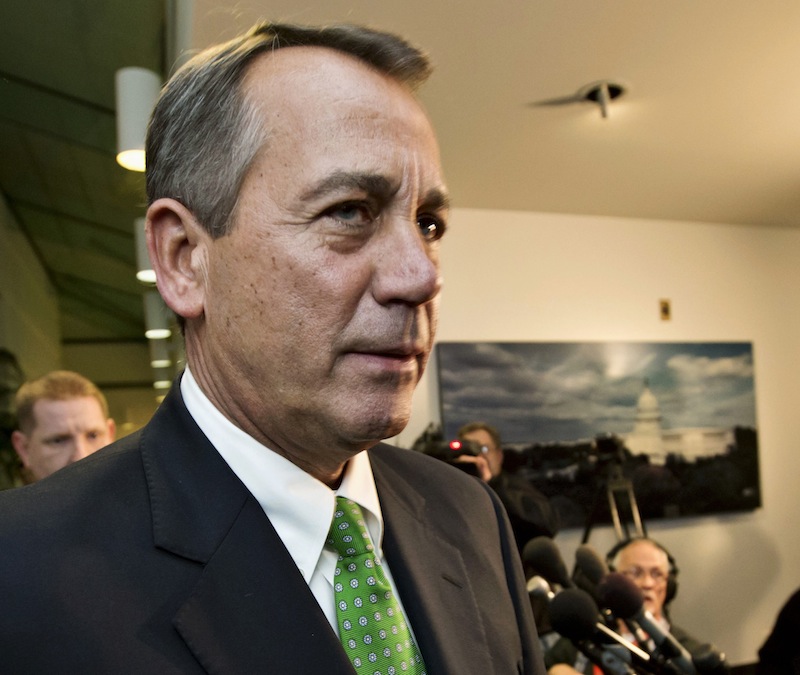WILLIAMSBURG, Va. – House Republicans backed away from their resolute position on the federal debt ceiling, announcing Friday that they will move next week to boost the government’s borrowing authority for three months.
The move is a retreat from the earlier insistence among some Republicans that any such debt increase would have to be matched by spending cuts of equal or greater size.
A vote on the proposal is expected Wednesday. If successful, the measure would postpone what was expected to be a major clash with the White House over government spending.
The new strategy, crafted at a three-day retreat here that ended Friday, is one sign that Republicans, battered at the polls last November and saddled with record-low public approval, are looking for new ways to litigate their differences with President Obama and congressional Democrats over spending and deficits.
Under the bill, Republicans will seek to raise the debt limit to allow government borrowing through mid-April – long enough, they say, to give both chambers time to pass a budget for the next fiscal year. If either chamber fails to adopt a budget by April 15, that chamber’s members would then have their congressional pay withheld.
As laid out to fellow Republicans in a speech at the retreat, House Speaker John Boehner of Ohio said the goal would be to force Senate Democrats to pass a budget, something they have failed to do for more than three years. With a budget in place, he told them Republicans would require that a longer-term increase in the debt ceiling be tied to significant spending cuts.
“We are going to pursue strategies that will obligate the Senate to finally join the House in confronting the government’s spending problem,” he said, according to excerpts from a speech he gave during the retreat that were released Friday.
As for docking the Senate’s pay if it does not adopt a budget, Boehner said, “The principle is simple: No budget, no pay.”
The Republicans’ new path is an attempt to acknowledge the reality that they control only the House while preserving a tactical advantage that could force long-term reductions in spending, Rep. Paul Ryan of Wisconsin told reporters Thursday.
An administration official said the White House viewed the move as a major concession by House Republicans.
Although Obama has in the past insisted on increases of sufficient length to calm financial markets and remove any doubt about the ability of the U.S. government to pay its bills, the official said the president would accept a “clean” short-term extension that did not include cuts.
“We are encouraged that there are signs that congressional Republicans may back off their insistence on holding our economy hostage to extract drastic cuts in Medicare, education and programs middle class families depend on,” White House Press Secretary Jay Carney said in a statement. “Congress must pay its bills and pass a clean debt limit increase without further delay.”
A spokesman for Senate Majority Leader Harry Reid, D-Nev., said the Senate would “be happy to consider” an increase in the debt ceiling that arrives without conditions. He did not address, however, how the Senate would treat the House’s proposal to tie member pay to the passage of a budget.
Some leading House Democrats reacted more negatively than the White House, asserting that a short-term extension would inject new uncertainty into the economy and indicated that tying congressional pay to the production of a budget would violate their belief that Congress should increase the debt ceiling without strings.
“We need a clean debt ceiling increase and a bipartisan and balanced budget that protects Medicare and Social Security, invests in the future, and responsibly reduces the deficit,” Drew Hammill, spokesman for Democratic leader Nancy Pelosi, said in a statement issued Friday.
Send questions/comments to the editors.



Comments are no longer available on this story